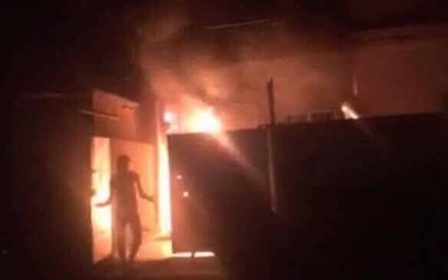Iraqi Kurdistan’s oil exports cut by more than half
Iraqi Kurdistan's oil exports were more than halved on Wednesday in the first major supply disruption since the independence referendum last month, as Iraq's military retook some of the biggest fields from the Peshmerga forces.
Kurdish oil exports from the Mediterranean port of Ceyhan dropped to just 225,000 barrels per day on Wednesday, compared with normal flows of 600,000 bpd, with both Kurdish and Iraqi sources citing technical glitches in the Kirkuk area.
The area came under the control of Iraqi military on Tuesday for the first time since 2015, effectively halving the amount of production under Erbil's direct control.
Two Iraqi oil officials said operations were halted at six pumping stations at the Avana and Bai Hassan oil fields, taking out about 350,000 bpd of production.
One official said normal operations were due to resume in the next 24 hours.
Iraqi Prime Minister Haider al-Abadi ordered the advance on the two fields in the wake of the independence referendum by the semi-autonomous Kurdish region last month.
Turkey has several times threatened to halt flows through the Kurdish pipeline because of the referendum. Baghdad also depends on the pipeline for some exports as its own pipeline has been down for several years.
The crude flows to the international market via the Mediterranean Turkish port of Ceyhan. The main lifters of the oil are trading houses Vitol, Petraco, Glencore and most recently Russia's Rosneft via pre-financing deals.
The head of trading house Vitol said on Wednesday he hoped infrastructure would be protected amid the spike in tensions, although exports may still drop in the weeks to come.
Despite quickly changing events in Kurdistan, Russia’s Rosneft on Wednesday said it had signed a deal with the government of Kurdistan to put into force production sharing agreements on five oil blocks in the region - a $400m investment.
Rosneft has previously loaned Kurdistan $1.2bn guaranteed by oil sales and is seeking to help Erbil build two major oil and gas pipelines as part of President Vladimir Putin's drive to regain influence in the Middle East.
Stay informed with MEE's newsletters
Sign up to get the latest alerts, insights and analysis, starting with Turkey Unpacked
Middle East Eye delivers independent and unrivalled coverage and analysis of the Middle East, North Africa and beyond. To learn more about republishing this content and the associated fees, please fill out this form. More about MEE can be found here.




